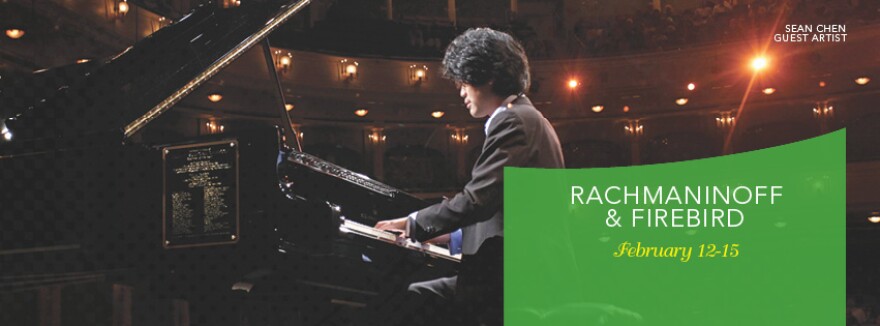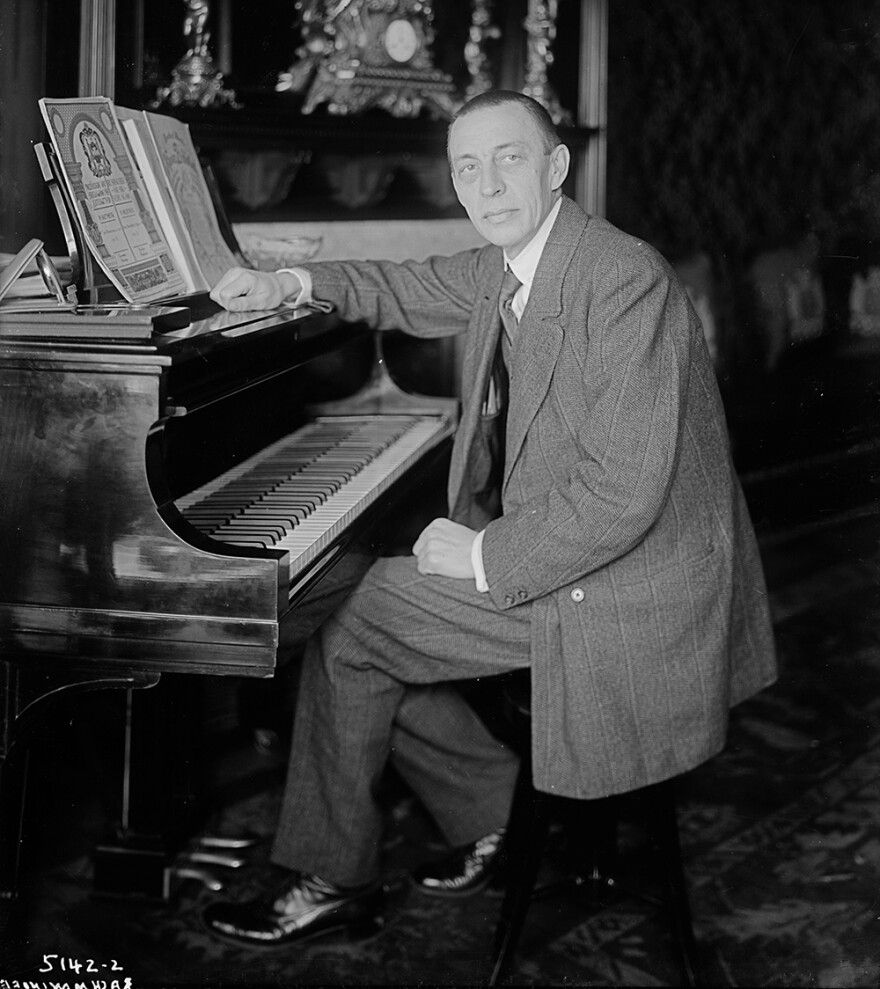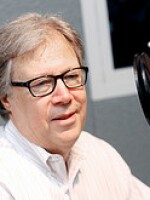In some circles, Rach 2 is derided as being cheesy and sentimental.
There’s a moment in Billy Wilder’s 1955 movie “The Seven Year Itch” that I like a lot, and it doesn’t involve a white dress billowing over a subway grate.
It’s when the Tom Ewell character, a hapless married man whose wife and son are away on summer vacation, puts a little music on the record player in order to get the Marilyn Monroe character -- his new upstairs neighbor, who has dropped down for a visit -- in the mood for some misbehaving.
The piece he carefully selects is the heavy-breathing Piano Concerto No. 2 of Rachmaninoff.
Marilyn – her character name is simply “The Girl” – listens to a few bars, encouragingly rapt.
Then she says, in a now celebrated line: “This is what they call classical music, isn’t it? I can tell because there’s no vocal.”

The hoped-for seduction eventually fizzles, comically.
But the fault is Ewell’s, not Rachmaninoff’s.
Ewell had in fact made an astute choice. The Second Piano Concerto might be the most swooningly seductive and, as a result, abidingly popular, classical piece ever written.
This week, the Hartford Symphony Orchestra will feature the concerto in its upcoming series of Masterworks concerts, Thursday, February 12, through Sunday, February 15 at the Bushnell’s Belding Theater. The soloist is Sean Chen; music director Carolyn Kuan conducts. The program also includes Stravinsky’s “The Firebird.”

Sergei Rachmaninoff (1873-1943) composed a number of works that are consistently among the pieces that audiences, even modern, fickle, distracted, hard to please audiences, pay money to hear. Even so, the Second Piano Concerto, known in the trade as Rach 2 -- does seem to be in a category of its own.
The British radio station Classic FM – which prides itself on keeping a finger on the faint but still steady pulse of classical music fandom in the UK – does an annual listener poll to try to determine the most popular concert works. In recent years, two pieces have slugged it out for the top spot. One is Vaughan Williams’s bucolic “The Lark Ascending,” which has special meaning for Brits at several levels.
The other is Rach 2.
The concerto dates from 1901, and was the composer’s first real success, following the traumatizing failure, a few years earlier, of his First Symphony. It has never not been popular.
At the moment there are roughly 200 recorded version of the piece in print, including a celebrated one that the composer himself recorded in 1929 with Leopold Stokowski and the Philadelphia Orchestra.
Of course, its very popularity has had its hazards. In some circles Rach 2, and for that matter almost anything by the composer, is derided as being cheesy and sentimental.
Most musicians I know, including almost all pianists, think otherwise. Rachmaninoff may have written in a musical language that barely partook of the developments of the 20th century, but he was a sophisticated, craftsmanlike composer. Anyone who dismisses Rachmaninoff as a lightweight or a mere tunesmith needs to spend some time with his a cappella choral masterpiece “Vespers,” or for that matter his choral cantata “The Bells.” Or his Cello Sonata. Or his solo piano music. You get the idea.
Detractors or no, the Second Concerto, along with the Third, which is nearly as beloved, are among the Everests of the piano literature, and almost every soloist knows that sooner or later he or she will have to traverse them.
Rach 2 has insinuated itself into the popular culture in hundreds of iterations, including being extruded into the 1945 standard “Full Moon and Empty Arms,” made famous by Frank Sinatra, and just now reimagined by Bob Dylan (see below). It has found its way into Japanese anime.
And the movies. If the concerto contributed to a comic setup in “Seven Year Itch,” it provided a moving, emotionally rich running backdrop to a very different kind of movie, David Lean’s 1945 romantic drama, “Brief Encounter.”As all good movie fans know, this is one of the great films of its kind, with a screenplay by Noel Coward, based on his own play.
It would be hard to think of a movie that uses classical music (and there are a lot of them) in more integrated, viscerally effective way.
Then again, it would be hard to think of a piece that more readily begs to have a movie built around it than Rach 2.
MTT, Former Bad Boy, Turns 70
It was sobering for me to read, a few weeks ago, that the conductor Michael Tilson Thomas had just turned 70. For years, it had seemed that MTT was the perpetual bad boy of classical music -- the brilliant, if cocky, prodigy and Lenny protégé who somehow never quite lived up to his early billing. He bounced around, suffered a couple of personal missteps, seemed for a time destined to be one of music’s “what if” cases.

For years, it had seemed that MTT was the perpetual bad boy of classical music
And then, quietly, he took the reins of the San Francisco Symphony in 1995 and something seemed to fall into place. He reshaped the San Francisco ensemble – a perfectly respectable outfit – into one of the most enterprising, forward-looking orchestras in the world. And he himself seemed to be energized in the process, becoming a more convincing figure on the podium, as well as a more articulate and imaginative musical thinker off of it.He founded the great New World Symphony in Florida, as a vehicle to train and polish the next generation of orchestral players. He became a serious student of musical technology. He conceived the brilliant PBS “Keeping Score” programs about serious music, and in so doing truly accepted the Bernstein mantel.
It’s strange to think of MTT as now one of American music’s elders. Nevertheless, Happy Birthday, maestro -- many happy and productive returns.
Dylan Sings Frank, Part II
Last week in this blog, I talked about Bob Dylan’s new album Shadows in the Night, on which he sings songs associated with Frank Sinatra.
A few readers thought I was being disrespectful to Dylan, or that I was making fun of him.

Let me clarify. I have been a Dylan fan and student since before he plugged in at Newport. I have seen him live multiple times, including a memorable edition of “Rolling Thunder,” back when it rolled into Hartford. At one time, I knew all the words to “Sad Eyed Lady of the Lowlands.”
I think Dylan doing Sinatra is fine. Maybe inevitable: A man gets to a certain age, he wants to try his hand at Frank’s songs.
It’s even mildly interesting to hear, say, “Some Enchanted Evening” or “Where Are You,” backed by Bob’s five-piece band featuring a prominent pedal steel obbligato.
The voice itself can be poignant in its very effortfulness.
It’s just that “mildly interesting” and “poignant” do not necessarily add up to something that’s all that listenable.
He’s Bob Dylan and he gets to do this if he wants to. But it’s also okay for us to prefer the originals, and to explain why.
Steve Metcalf was The Hartford Courant’s fulltime classical music critic and reporter for over 20 years, beginning in 1982. He is currently the curator of the Richard P. Garmany Chamber Music Series at The Hartt School. He can be reached at spmetcalf55@gmail.com.


